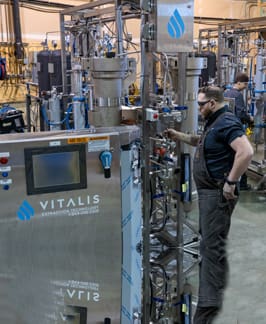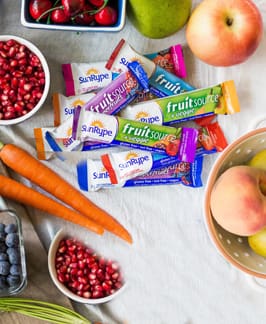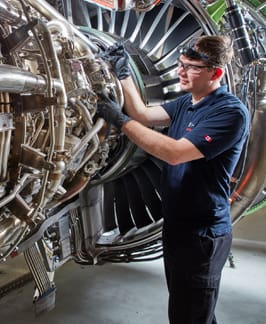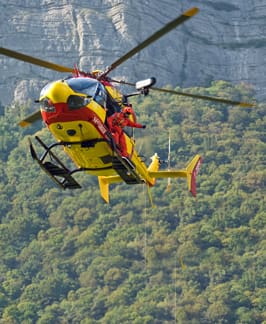Widely used in the botanical, food, and pharmaceutical industries, CO₂ extraction is a process that uses pressurized carbon dioxide to pull phytochemicals, waxes and oils from plants. For example, it removes the caffeine from coffee beans. In the world of cannabis, it allows companies to create product lines derived from a broad spectrum oil.
“Vitalis was born from a long journey of seeking better CO₂ extraction solutions and systems,” explains Co-founder and Chairman Joel Sherlock. “We went to all the big players to study their equipment and spoke to extractors about what they liked and didn’t like, then used those findings to engineer the largest commercialized CO₂ extraction systems on the market.”
“Today, producers come to us from all over the world and all types of industries – cannabis, hemp, pharmaceutical, F&B, and essential oils – to turn their organic materials into pure extracts. What separates us from a lot of our competitors is the fact that we’re an OEM. Our systems are fabricated, manufactured, and tested in-house at our Kelowna facility, giving us complete control of the quality and reliability of our products.”
“While our operations have grown to span five continents – and counting, we’re proudly rooted in Kelowna. Over the years I’ve launched a number of businesses in the area and what I’ve learned is that there’s no greater support than the help you get in small communities.”
“If I could offer any advice when it comes to starting a company here, it would be to put yourself out there in different ways. Be active in the community through organizations and events and build authentic relationships with others who can share their own learnings. One day, you’ll be on the other side, repaying the favour.”

“While our operations have grown to span five continents – and counting, we’re proudly rooted in Kelowna”











